
This article is more than
1 year oldDubai flooded with year's worth of rain in just 12 hours
While check-ins for Emirates and Flydubai, the airport’s two main operators, had reopened, the airport warned that its Terminal 3 was experiencing high volumes of travelers as airlines tried to handle the backlog from cancellations and delays.
“There is currently a high volume of guests in [the] Terminal 3 check-in area,” it said in a statement on its website. “Passengers should only come to Terminal 3 if they have received a confirmation from their airline regarding their flight departure.”
Agency videos showed large crowds of passengers at the airport, which was recently named as the second busiest worldwide.
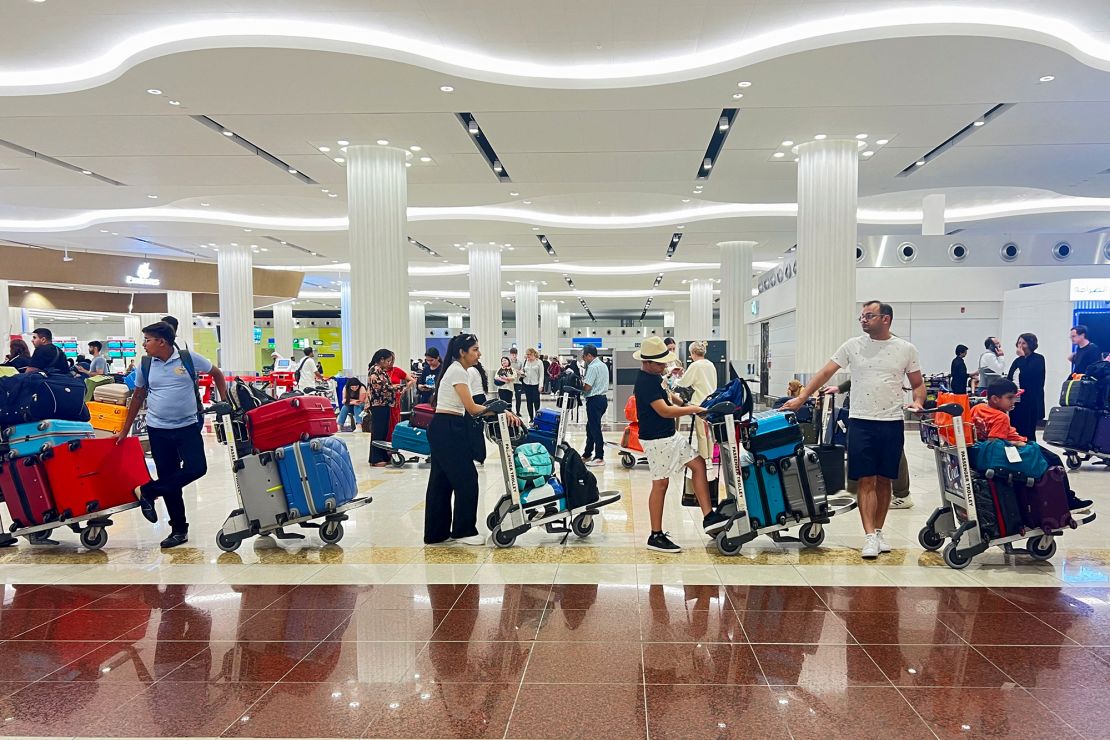
The tarmac of Dubai International Airport was left submerged. Videos showed large jets plowing through the rippling water, sending up sprays in their wake. In the airport’s terminals, hundreds of passengers were forced to wait as their flights were canceled or delayed.
Mohit Mehta, from Gurgaon in India, said he had spent more than 30 hours at the airport after trying to catch a morning flight out of Dubai on April 16.
“[The] condition was really bad,” he told CNN. “No one was there to answer the queries. It was all haywire. There [was] a lot of water logging inside the airport. A lot of leakage happening from the roof.”
Mehta added that a shortage of catering options in the airport’s Terminal 1 meant large queues as people sought food and water, which he said was being sold a premium.
“For eating and drinking there was scarcity at the airport.”
‘Desperate’ need of help
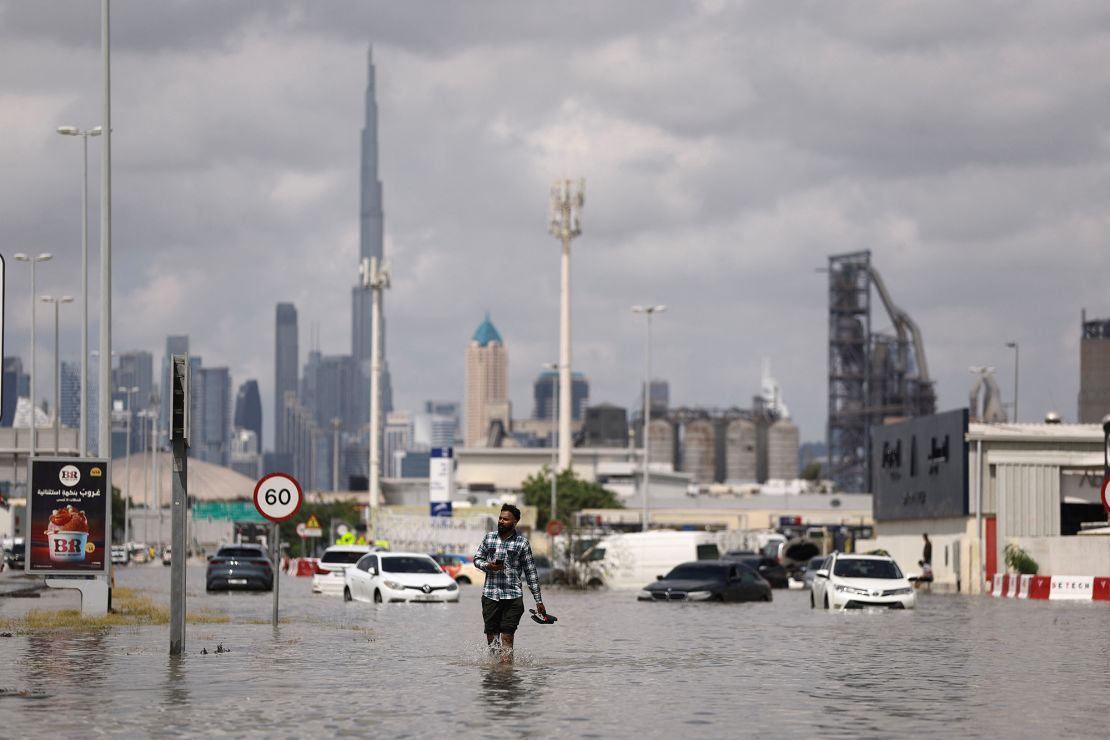
On Thursday, some 549 flights in or out of the airport were delayed and 31 canceled, according to airplane tracker site FlightAware. Of those delays, 302 were Emirates flights – 65% of the UAE flag carrier’s services – and 152 were FlyDubai. Hundreds more had been canceled a day earlier.
Emirates issued an apology to affected passengers. Some have taken to social media complaining they had been unable to contact the airline.
“Emirates extends our sincerest apologies to impacted customers who have experienced delays and disruption to their travel plans caused by bad weather and road conditions,” the airline posted on X. “We appreciate how difficult it is for everyone affected.
“While some customers have been able to return home or reach their destination, we are aware that many are still waiting to get on flights. Our teams are working hard to restore our scheduled operations, as well as secure accommodation and other amenities for affected customers at the airport.
“Our primary concern will always be the safety of our customers and crew, and this will never be compromised.”
One X user with the handle Mister Funk replied that they were struggling to contact the airline after being stranded in Amsterdam when their flight to Dubai was canceled.
“We are unable to get a response from you from literally any number in the world, livechat is not responding,” they wrote. “We are stuck in Amsterdam and are in need of help desperately.”
Some 134 million passengers flew through the UAE’s airports last year, including 87 million traveling through Dubai International Airport alone. The UAE is home to approximately 10 million people, and is a hub for five airlines.
‘Grueling’ journey
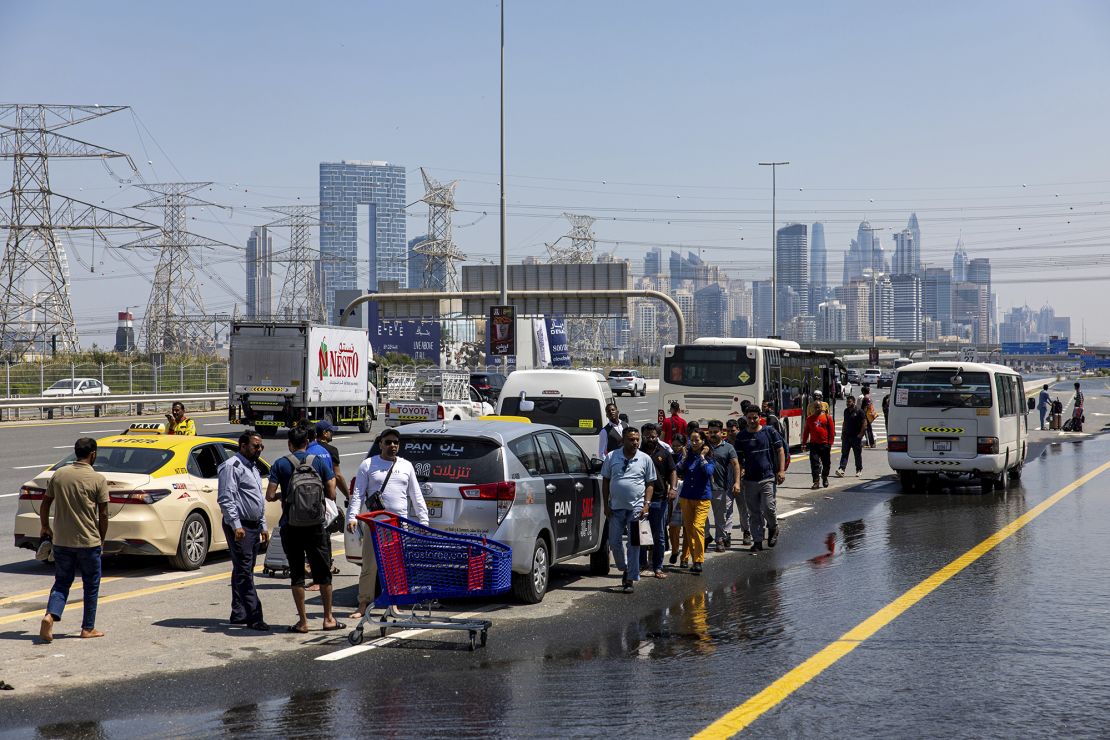
Access roads to the airport were also hit as traffic ground to a halt. The rain fell so heavily and quickly that some motorists on some roads in Dubai were forced to abandon their vehicles as the floodwater rose and roads turned into rivers.
The storms were part of a pattern of extreme rainfall events emerging as the planet’s atmosphere warms due to human-driven climate change. A warmer atmosphere is able to soak up more moisture like a towel and then ring it out in the form of flooding rainfall.
The weather conditions were associated with a larger storm system traversing the Arabian Peninsula and moving across the Gulf of Oman. This same system has also brought unusually wet weather to nearby Oman and southeastern Iran.
In Dubai, the rain meant delivery services were unable to function and many residents were unable to leave their homes due to waterlogged streets, which cars and pedestrians couldn’t access. Some residents were seen rowing canoes outside their homes, and one viral video on social media showed residents wake boarding on a flooded street in a residential area.
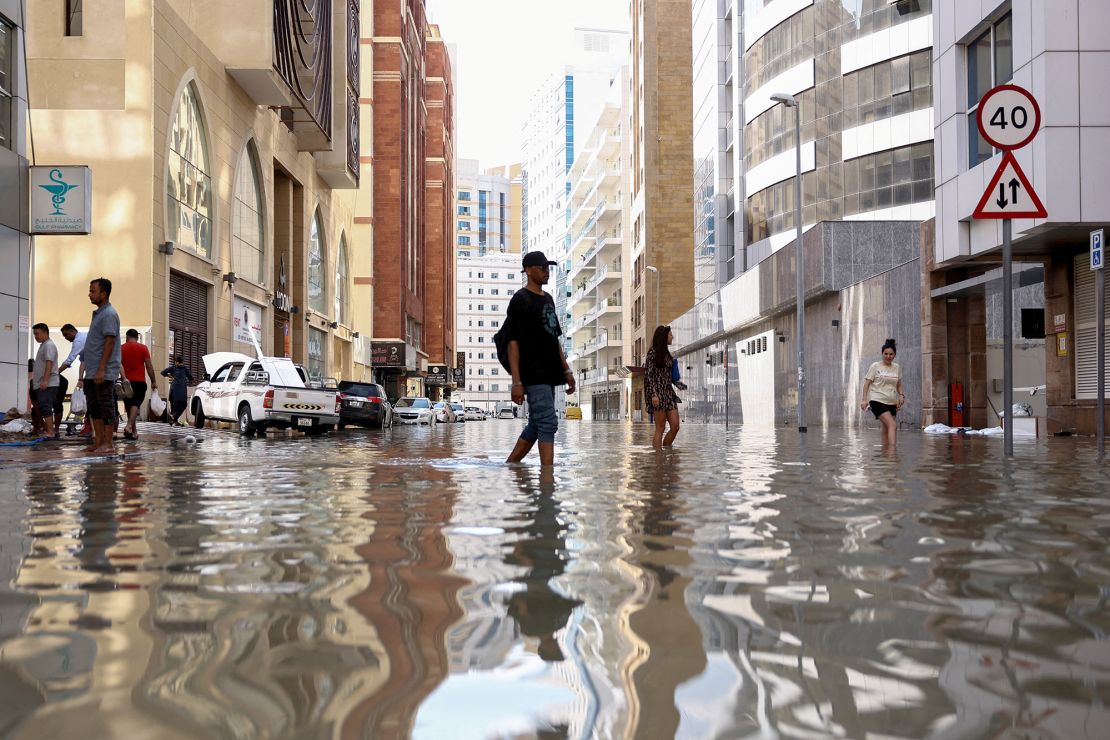
Other videos from social media showed water rushing through a major shopping mall and inundating the ground floor of homes.
Madiha Khawaja, a tourist visiting from London with her husband and two children, aged two and four, said she felt “helpless” trying to calm her children amid the chaos.
The rain had disrupted building lifts, including in some of Dubai’s tallest skyscrapers. Khawaja said she spent 45 minutes taking the stairs to her 27th floor apartment in the heart of Dubai to find rest and shelter for her toddlers.
The journey was “grueling,” she said, adding that “upon reaching our apartment with hungry and tired kids, we were met with dry taps, no drinking water, no telephone service, no Wi-Fi connection.”
“The kids were hungry, and I as a mother was getting very anxious and upset,” she told CNN.
Clean-up operations
On Thursday, the streets between the soaring skyscrapers of Dubai, were still covered by large pools of water while residents in several neighborhoods remain holed up at home avoiding blocked roads.
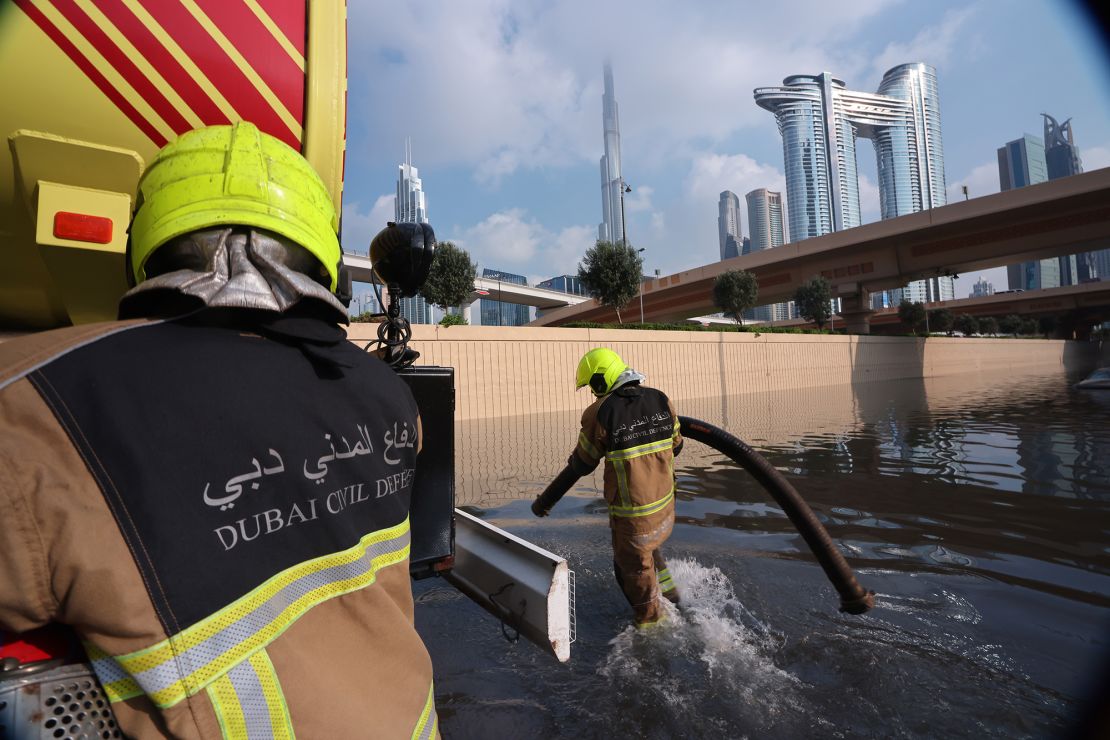
Municipal authorities were continuing to use trucks to pump water off the roads and clear debris blocking the streets. The Dubai municipality is also asking residents to send Whatsapp’s to remove the accumulated rainwater.
Sheikh Zayed Road, a main highway connecting the entirety of Dubai has been difficult to access due to cleanups, leaving traffic congestions across the city as some metro stations remained non-operational.
In the nearby emirate of Sharjah, 65 community service patrols were deployed to the areas affected with rain while cleanups continued. Damage from the storm remained visible in different neighborhoods of Abu Dhabi.
Schools will remain closed and federal workers will be working from home until Friday, the government said.
UAE President Sheikh Mohamed bin Zayed Al-Nahyan has instructed authorities to “quickly work” on evaluating the country’s infrastructure and direct support to be provided to families impacted. He also ordered the transfer of families affected to safe locations in cooperation with local authorities.
CNN’s Mary Gilbert, Brandon Miller, Abbas Al Lawati, Teele Rebane, Kathleen Magramo, Mostafa Salem, Sophie Tanno and Eleni Giokos contributed reporting.